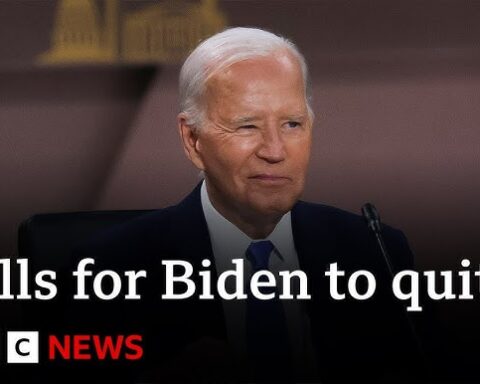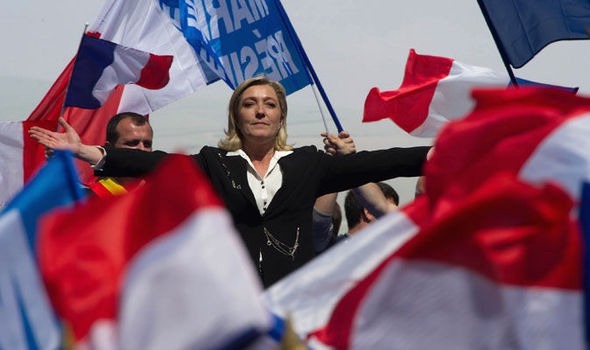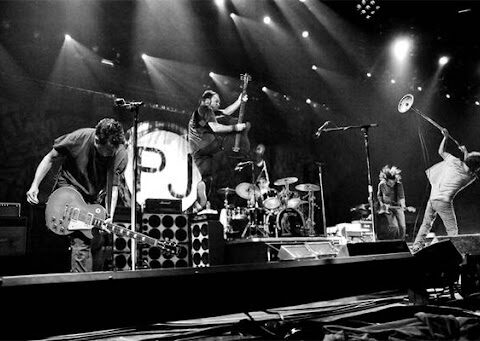Malala Yousafzai, the now world-famous (and Nobel Prize winning) Pakistani schoolgirl shot in the head by the Taliban, has said she is angered by how pop music represents women.
The 17-year-old activist has said most female pop stars in the West have accepted that they should be “treated like objects”. She told The Observer magazine; “It gets quite difficult for me when I listen to pop music.”
It’s difficult to not agree with her.
We ‘in the West’ are mostly desensitized to it, but to someone like her it would presumably be more of a culture shock. And this isn’t a cliched tirade about how ‘Pop Music Sucks’ either; Pop/Chart music has always sucked – there’s nothing new about that.
It’s not about the quality of the music that gets played on radio or rotated on music video channels or any of that; again, it’s mostly awful, but that’s not the point either. ‘Bad’ music is part of life, that’s fine; but it’s about the abject tastelessness and utter vapidness that permeates modern pop music culture and targets the minds of, in particular, young girls.
The objectification of women in pop music and pop videos, whether it’s the influence of male executives and managers or whether – more often than not – it’s the performers themselves willingly acting as sex objects for the sake of selling their music, is so prevalent that it’s pretty much the defining characteristic of major female pop stars.
What’s extraordinary is that it probably isn’t exploitation – but a conscious choice of style and/or marketing by female performers choosing to use a shared brand of crude and particularly aggressive sexuality to define themselves.
The majority of it isn’t done to appeal to men – for the most part their target audience doesn’t consist of men, but other women. Actually not just other women, but specifically young girls.
Given this, it becomes more difficult for girls who worship at the altar of the pop culture mainstream to overly criticize a talentless (and as it happens, tasteless) corporate dick like Robin Thicke when he puts out something like that ‘Blurred Lines’ video (consisting of various naked girls parading alongside the male performers), when the most marketed and popular female stars themselves have basically contributed to a culture that makes something like ‘Blurred Lines’ seem culturally legitimate and non-offensive.

‘Blurred Lines’ is a highly lucrative crime against taste, of course; but most of the prevailing mainstream music industry taken as a whole is pretty much a crime against taste too. And I’m not singling out Robin Thicke either (seriously I had to Google ‘Blurred Lines’ just to find out the name of the ‘artist’ for the sake of this post; I have no idea about most of this stuff); the trend was set much longer ago by the long-term objectification of women in popular rap/hip-hop videos and in white-male cock-rock acts of the eighties before that.
Even more depressing, the extent to which the crudest sexual imagery dominates popular music now makes it possible that much of the younger female audience doesn’t even think there’s anything demeaning about a corporate male pop star casually parading some faceless naked women in a video to promote his single and make him money.
I mean in every possible respect, ‘Blurred Lines’ is the most offensive form of mass social conditioning posing as ‘art’ that I’ve ever seen; and the best part is how immensely profitable and how vastly promoted and supported it was within the industry and all mediums. And even better than that is the likelihood that most of the fans of that single/video, most of the people rewarding it, were probably young women gleefully contributing to a hugely popular demeaning of their own gender! It’s priceless!
And that’s merely when men are demeaning women and then selling it to other women!
Being male (last time I checked), I find that video and its culture offensive. If I was female, I don’t know how much worse I would feel about how the most famous and popular female stars choose to package themselves and what it communicates to current or future generations of young women and their gender identity.
They might offer some statement to the effect of ‘it’s a form of female empowerment’; but quite how that implied message – of needing to cross into a polished, corporate form of semi-prostitution in order to suggest value – is meant to empower anyone is beyond me.

It’s difficult to look upon any of this as any kind of meaningful ‘feminist statement’. There have, of course, been great traditions of feminism in music, from elements of soul, Motown and hip-hop to punk, rock and indie acts and the likes of Lauren Hill, Kathleen Hanna, Courtney Love, PJ Harvey, Babes in Toyland, Seven Year Bitch, the Riot Grrrrl scene and various potent female voices in both pop and counter culture scenes over the years, many of whom have at one time or other been cited as feminist icons.
But that stuff is a world away from the kind of stuff we’re talking about here. And also it’s worth nothing that most of those examples just mentioned were never targeted at, or listened to by, young girls or teenagers, but were primarily speaking to an older audience (or to more intellectually inclined elements of the younger audience), and also were never massive corporate entities with excessive mass-media marketing and permanent mainstream TV exposure.
No one was ever shoving, say, Joan Jett, down the throats of TV viewers, magazine readers or social media addicts 7 days a week, and in prior musical eras there was never a concerted campaign to flood all mediums with the most explicit, indulgent content and keep it in constant rotation.
Yet the amount of exposure to pop icons like Rihanna and Lady Gaga that even a largely uninterested party is subject to on a weekly basis is extraordinary. I have never heard a Nicky Minaj song in my life, yet I know more about her than I should. Yet curiously it doesn’t work the other way around; I highly doubt the average Nicky Minaj fan finds themselves randomly exposed to the latest comments by someone like PJ Harvey or Bjork.
The point is that the entire system seems optimised to massively promote a certain brand of image-based pop culture aimed at mass influencing of young minds and their perceptions of women and sexuality.
And while sexuality has always been a central part of most music, it’s never been as harsh and as devoid of layer and nuance as it is in contemporary pop and hip-hop. It all seems tailored to aggressively sexualise at an early, highly impressionable and formative age, and begins to resemble A Clockwork Orange sensory bombardment-style mind-control.
It could be noted that more substance-driven female performers (especially songwriters) tend not to do it so much; probably indicating that this overly sexual self-objectification is more the business of that fame-desperate class of performers that Bill Hicks once referred to as “sucking Satan’s cock”. I’ve no interest in getting into the area of ‘devil-worshipping’ pop stars here (you can see that stuff elsewhere though; just check You Tube – it’s full of it), but I don’t get the motivation behind wanting to heavily sexualise school-girls or expose them to overly aggressive sexual imagery and/or references on a prolonged basis.

Shit, maybe old Bill Hicks was right and Satan does control the mainstream music industry; let’s be honest, Nicky Minaj looks like a woman who’s had some serious Satanic jizz at some point.
We’re not really in the realm here of sensitive, artistic souls shying away from the limelight (the Amy Winehouses’ and Lauryn Hills of the world, for example), but the opposite; aggressively sexual performers who actively embrace their role model status and who revel in both a projected decadence and in being worshiped as modern goddesses.
And coincidentally (or not), it’s usually the alleged ‘Illuminati’ (I used that word loosely here) brand of pop stars who project that image the most. I’m getting beyond what Malala Yousafsai was talking about now, but the way is paved primarily by the class of ‘mega-stars’ (or those trying to get into that class) who for whatever reason get off on making the ‘eye’, ‘pyramid’ and ‘6’ symbols whenever they can.
I don’t know if anything like the so-called Illuminati exists or not and I don’t like the laziness a lot of people have of labelling everything as ‘Illuminati’, but something is going on there with all those pop stars and millionaires making those symbols for no apparent reason.

Someone still needs to ask them about that, by the way; it should be the first question asked when they go on to lame light-entertainment shows to plug their products and sell their brand.
Getting back to the main point, it’s not as if a more dignified and less semi-pornographic approach would necessarily negate sales; Amy Winehouse and Alicia Keys are examples of mainstream, chart-dwelling female artists who generally managed to win the love and loyalty of a predominately female audience while also not modelling themselves on the prostitute look.
Proving that you don’t have to be a politicized indie-based singer/songwriter with a guitar in your hand or a phenomenal-voiced jazz singer to be credible and not have to whore yourself to the lowest common denominator.
If the modern mainstream entertainment industry is centered around a concerted dumbing down of society, the seemingly deliberate sexual objectification of the most financially successful women in music is a central theme in the programming; at least equal in effect to the propagation of the most decadent, self-indulgent, non-political and corporate form or rap/hip-hop music as the biggest-selling and most socially influential music genre of the 21st century.
There’s a reason the Kanye Wests‘ of the world are richer and get more coverage than the likes of, say, Public Enemy; rap music, at its root, was at one time a potentially potent force for social and political discourse and mobilisation.
Curiously the more the genre moved towards mainstream industry domination, the more it had its claws blunted and the more the tone of it generally devolved towards the money-worshiping, misogynistic and somehow incredibly glamorous culture/lifestyle that mainstream rap projects today. It has also, uncoincidentally, utterly diminished as any kind of meaningful social or political force or threat.
It seems to me that there is a discernible programme in operation to create and reinforce a very low-intellect level of popular culture and collective consciousness, a central part of which involves long-term exposure from a young age to intense sexual imagery and very specific messages concerning image and gender identity.
Messages that are first communicated in formative early adolescence but which continue to inform and influence image and behaviour into early adulthood and possibly beyond.
I’m not being prudish, by the way; and there’s nothing wrong with pornography that’s labelled as pornography, but there’s plenty not right about lucrative ‘covert’ pornography posing as some kind of ‘art’ that is both culturally and psychologically influential in a massive way; especially when it’s coming from a network of billion-dollar corporate industries with their tentacles firmly implanted into the minds of millions of young people across the world.
But ‘Female empowerment’? Really?
Malala Yousafsai has a point. “It gets quite difficult for me when I listen to pop music,” she said in the interview.
Seriously, Malala’s not the only one who finds it all pretty gross. It’s all gotten far beyond embarrassing.





I totally agree! Pat Benatar and Joan Jett didn’t have to take their clothes off but simply relied on their music. I miss that era and also hate how the industry has begun sexualizing everything. I know sex sells but shudder to think how far we will go before we realize how much is too much.
Thanks irenehelenowski, glad you agree. It’s not being prudish either, but just recognizing what the situation is. Joan Jett, etc, isn’t even my generation but I too long for that kind of era, even though I hadn’t born yet then 🙂